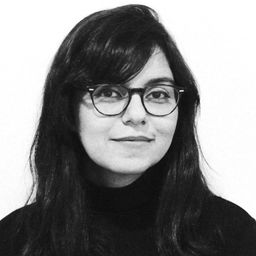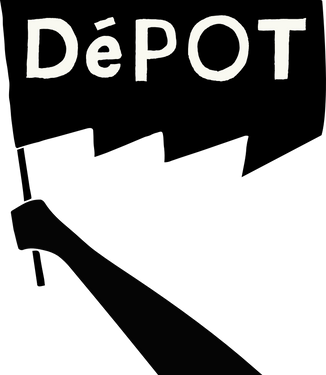
Mirna Ashraf Ali
Mirna Ashraf Ali is currently an Urban Heritage Planner at UNESCO| World Heritage Centre, World Heritage Cities Programme, She recently had her
Double Degree Master's of Urban Design and Heritage Studies at Brandenburg University of Technology in Germany and Alexandria University in Egypt. (RHCD- Revitalization of Historic City Districts). She received her bachelor's degree in Architecture from Alexandria University in 2018. Her current field and expertise is urban heritage research with cultural platforms and initiatives in Cairo and Alexandria, for she worked as a research assistant since she graduated. She also participated in several international workshops and projects before her graduation, from
which she got an interest and responsibility for the built environment and sociology. From the main highlights of her participation; In 2016 she was one of the organisers of the workshop and project " A Schoolyard for All" under UNHCR, Alexandria University and
Ecumene Studio, which is a participatory design project. In 2018, she participated in the international workshop "Remake the City I" at the Swedish
Institute in Alexandria about Dialogues on Urban Development to Combat Climate Change. In 2019, she worked for the interpretation and
development of museum content at Shaboury museums consultancy and as a research assistant at Cairo Heritage School. In addition, Mirna Ashraf is
interested in the study of archaeology concerning the participation of the communities and its impact on the urban sphere, so in 2020, she joined
TICCIH as a student membership. She is also a member of ESACH "European Students' Association for Cultural Heritage."
Documents
Sessions auxquelles Mirna Ashraf Ali participe
Lundi 29 Août, 2022
Sessions auxquelles Mirna Ashraf Ali assiste
Dimanche 28 Août, 2022
Vous êtes invités au lancement du livre "Deindustrializing Montreal : Entangled Histories of Race, Residence and Class" le dimanche 28 août (13h-15h) à la brasserie Les Sans Taverne du Batiment 7 (1900 rue Le Ber) à Pointe-Saint-Charles. Deindustrializing Montre...
Joignez-vous aux organisateurs du congrès et aux membres du board de TICCIH pour un cocktail de bienvenue et quelques mots festifs de présentation, dans l’ancienne forge de l’École technique de Montréal, fondée en 1909, aujourd’hui intégrée au campus de l’Université du Québec à Montréal.
Lundi 29 Août, 2022
Industrialization processes have been global from their very beginning. However, their interpretation still tends to be limited to specific locations or regions, and to specific time periods. Regularly, for example, it is stated that the industrial revolution started in Europe, from where it spread to the world, supposedly bringing technological and social progress to „less developed“ countries. Earlier periods of technology and knowledge transfer processes, that were already in place in t...
Mardi 30 Août, 2022
Mercredi 31 Août, 2022
Le canal de Soulanges est une infrastructure, localisée sur la rive nord du Saint-Laurent, qui a été ouverte au trafic maritime en 1900, succédant alors au « vieux canal » de Beauharnois (établi depuis 1843 sur la rive nord du Saint-Laurent). Le canal de Soulanges a été abandonné en 1959, alors que s’ouvrait l’actuelle Voie maritime du Saint-Laurent qui relie les Grands Lacs à l’Atlantique. La conception du canal de Soulanges est due à l’ingénieur Thomas Monro (1831-1...
In this lecture, I would like to talk about deindustrialised communities, heritage and memory in the context of right-wing populism. Drawing on studies of memory and heritage, I argue that right-wing populists have cornered the market on talking about the past of deindustrialised communities. They have successfully misrepresented this rich and complex history to fuel rage, resentment, fear and reactionary nostalgia. Indeed, ‘the past’, and in particular the industr...
Jeudi 1 Septembre, 2022
This lecture will argue that the landscapes of industrial heritage that can be found in different parts of the world are directly related to the place-specific trajectories of deindustrialization. In other words: the different ways in which deindustrialization impacts on local communities has a direct bearing on the emergence of forms of industrial heritage. I will differentialte between deindustrialization paths and related industrial heritage regimes in a) Anglo-...
Vendredi 2 Septembre, 2022
Les participants se retrouveront à l'entrée (il n'y en a qu'une) du métro Lionel Groulx et de là, ils longeront le canal jusqu'aux écluses de St-Gabriel. Cette zone était autrefois la plus industrialisée du Canada. C'est aujourd'hui une zone d'affluence entre le quartier difficile, mais en voie d'embourgeoisement, de Pointe-Saint-Charles, historiquement irlandais et français, et la Petite-Bourgogne, l'un des premiers quartiers multiraciaux de Montréal. Plusieurs anciennes usines ont été co...
Samedi 3 Septembre, 2022
Suivez les traces du réseau ferroviaire du Canadien Pacifique et des anciens ateliers Angus, qui ont joué un rôle majeur dans le développement industriel et résidentiel du quartier Rosemont. Cette visite vous propose de mieux comprendre l'histoire de différents sites industriels établis dans ce quartier et transformés aujourd'hui en milieux de vie et en pôles d'emploi.Une visite conçue et guidée par Héritage Montréal. Départ au coin des rues...






